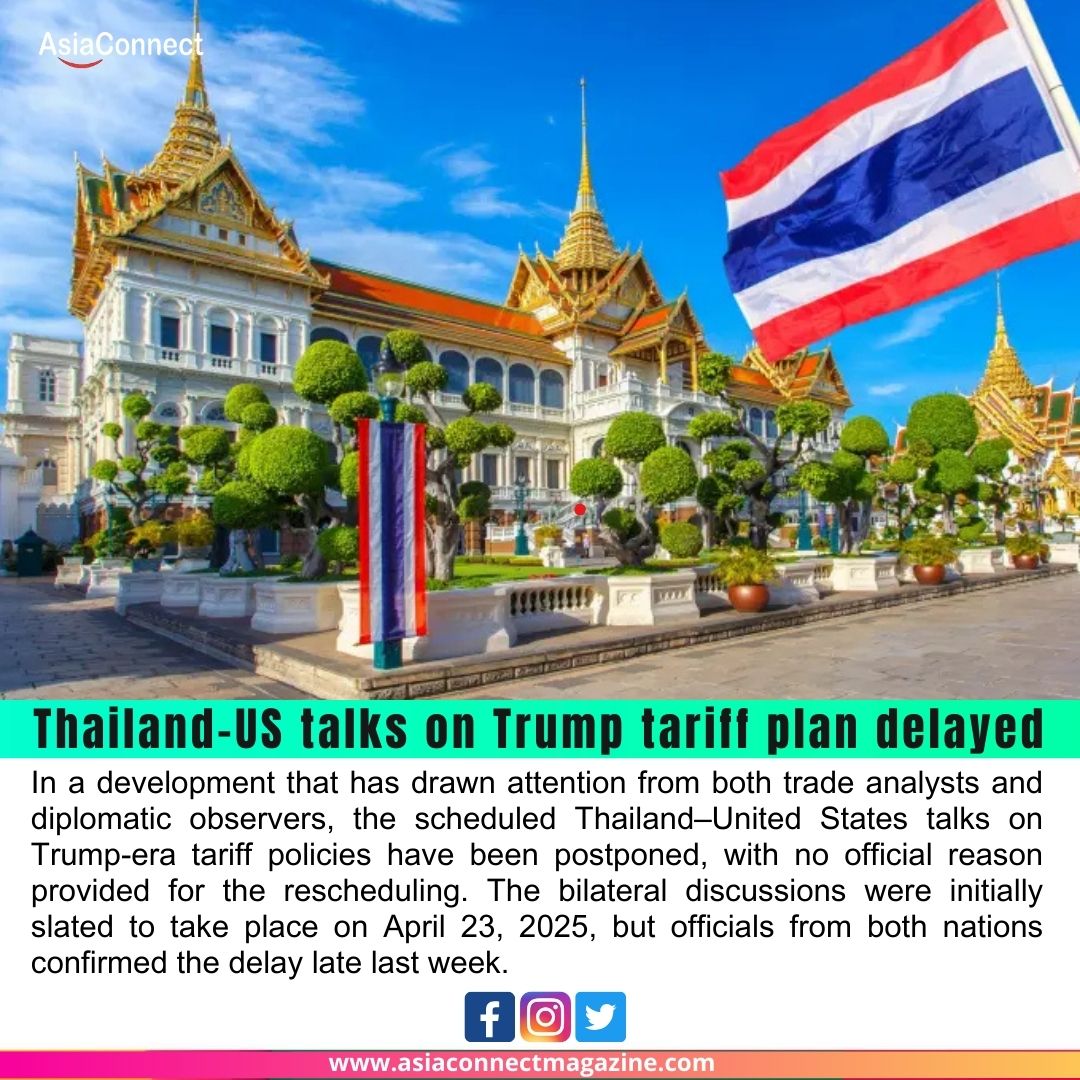Key trade discussions rescheduled as uncertainty lingers over future of bilateral economic ties
In a development that has drawn attention from both trade analysts and diplomatic observers, the scheduled Thailand–United States talks on Trump-era tariff policies have been postponed, with no official reason provided for the rescheduling. The bilateral discussions were initially slated to take place on April 23, 2025, but officials from both nations confirmed the delay late last week.
The talks were expected to focus on the ongoing trade issues stemming from tariffs introduced during former U.S. President Donald Trump’s administration, which affected a wide range of goods and altered traditional trade balances between the U.S. and several Asian economies, including Thailand. The delay has prompted speculation over both logistical issues and possible strategic recalibrations by one or both governments.
Trade between Thailand and the U.S. has historically been robust, with the U.S. being one of Thailand’s largest export markets. Key Thai exports include electronics, automobiles and parts, machinery, seafood, and garments. However, tariff changes introduced under the Trump administration created friction in certain sectors, particularly those involving industrial goods and processed food products.
Since the change in U.S. leadership, there has been an ongoing push to reassess and possibly renegotiate several trade terms that were altered during the Trump presidency. While the Biden administration has rolled back some of Trump’s trade policies, others remain in place, and their impact continues to shape the foreign trade strategies of affected countries, including Thailand.
The now-delayed talks were also expected to explore broader topics, such as digital trade, labor standards, supply chain resilience, and market access—issues that are increasingly critical in the post-pandemic global economy. Both sides were anticipated to present frameworks that would encourage sustainable and fair trade practices moving forward.
Observers believe the delay may indicate ongoing internal discussions or policy shifts in either country, especially as the U.S. prepares for the upcoming 2024 presidential election cycle. The outcome of the U.S. elections could again reshape trade dynamics, making some governments more cautious in entering long-term agreements ahead of potential political changes.
From Thailand’s perspective, the trade dialogue is part of a wider effort to strengthen its global trade partnerships and reduce reliance on any single market. With ongoing disruptions in the global supply chain, Thai officials are keen on ensuring tariff stability and market access for key exports.
In the absence of an official explanation, both governments have stated that the postponement is temporary, and that they remain committed to advancing trade cooperation. A new date for the discussions is expected to be announced soon.
As global trade patterns continue to evolve and geopolitical tensions impact economic policies, the outcome of these delayed talks will be closely monitored by the business communities in both countries. The results may not only shape Thailand–U.S. economic relations but also influence how other ASEAN nations approach their trade negotiations with Washington.





